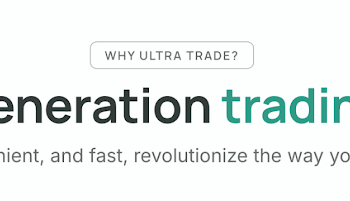
Retirement planning is a crucial aspect of personal finance, and as the financial landscape continues to evolve, more investors are seeking ways to diversify their portfolios with alternative assets. One such alternative gaining traction is the Equity Trust Gold IRA. This retirement account allows individuals to hold physical gold and other precious metals, offering a unique investment opportunity that can safeguard wealth during uncertain economic times. In this article, we will delve into what an Equity Trust Gold IRA is, its benefits, how to get started, and key considerations when investing in this form of retirement account.
What Is an Equity Trust Gold IRA?
An Equity Trust Gold IRA is a self-directed Individual Retirement Account (IRA) that enables investors to hold physical gold, silver, platinum, and palladium as part of their retirement portfolio. Unlike traditional IRAs, which typically hold assets such as stocks, bonds, and mutual funds, a Gold IRA allows for the inclusion of tangible precious metals. The custodian, in this case, is Equity Trust, a company that specializes in self-directed IRAs and offers services to facilitate the purchase and storage of these metals.
Equity Trust has earned a reputation as a leader in the self-directed IRA space, providing individuals with the flexibility to manage their retirement investments outside the conventional financial products offered by standard brokerage accounts. Through an Equity Trust Gold IRA, individuals can directly invest in physical assets that historically perform well during times of economic instability and inflation.
Why Choose a Gold IRA?
There are several compelling reasons to consider adding a Gold IRA to your retirement strategy. Here are a few key advantages:
Hedge Against Inflation: Gold has long been considered a hedge against inflation. As the purchasing power of paper currency declines over time due to inflation, gold tends to maintain its value or even appreciate. This is because gold is a finite resource with intrinsic value, unlike currency, which can be printed at will. For investors concerned about the long-term erosion of their retirement savings due to inflation, holding gold within an IRA can help preserve wealth.
Diversification of Investment Portfolio: A Gold IRA offers the ability to diversify your retirement portfolio with a non-correlated asset. Stocks, bonds, and real estate are often influenced by market trends and economic cycles. Precious metals like gold, however, can move independently of the stock market, making them an excellent diversification tool. This helps reduce the overall risk of your retirement portfolio by ensuring that your assets are spread across different investment types.
Protection from Economic Uncertainty: During times of economic instability, such as financial crises, geopolitical tensions, or market crashes, gold often performs well. When traditional financial markets are volatile, investors flock to gold as a safe-haven asset. This makes it a valuable addition to a retirement portfolio, especially for those looking for stability and security in their later years.
Physical Asset Ownership: One of the primary appeals of an Equity Trust Gold IRA is the ability to hold physical precious metals. Unlike stocks or bonds, gold is a tangible asset that can be physically held, offering a sense of security. If you’re looking for an investment that is not reliant on digital systems or paper-based products, gold can provide that peace of mind, knowing that your wealth is stored in a form that is not subject to the risks of digital or financial system failures.
Tax Advantages: Like other IRAs, an Equity Trust Gold IRA provides tax advantages. Contributions to a traditional Gold IRA may be tax-deductible, and the growth of your investments is tax-deferred until retirement. Depending on the type of Gold IRA you choose, you may also be able to take advantage of tax-free withdrawals in retirement, providing long-term tax benefits. Roth Gold IRAs, in particular, offer tax-free growth and withdrawals, provided specific conditions are met.
How Does an Equity Trust Gold IRA Work?
An Equity Trust Gold IRA operates similarly to other types of self-directed IRAs, but with a focus on precious metals. The main difference lies in the types of assets you can hold within the account. The process of setting up and managing a Gold IRA through Equity Trust involves several key steps:
Open a Self-Directed IRA: To begin investing in precious metals, you’ll need to open a self-directed IRA. This type of account gives you full control over your investments, allowing you to select the types of assets you want to include in your retirement portfolio. Equity Trust facilitates the opening and management of these accounts, providing the necessary tools and support to make informed investment decisions.
Fund Your IRA: Once your self-directed IRA is established, the next step is to fund it. You can fund your Gold IRA through direct contributions, rollovers from other retirement accounts (such as a 401(k) or a traditional IRA), or transfers from existing IRAs. It’s important to ensure that you adhere to the contribution limits set by the IRS, which can vary depending on the type of IRA you have.
Select and Purchase Precious Metals: With your IRA funded, you can now select the gold or other precious metals you wish to invest in. The IRS has specific guidelines on the types of metals that can be held in a Gold IRA. These include government-issued gold coins, gold bullion, silver, platinum, and palladium that meet a minimum purity requirement. It’s important to work with a reputable dealer to ensure that the metals you purchase meet IRS standards for inclusion in your IRA.
Storage of Precious Metals: Precious metals held within a Gold IRA must be stored in an IRS-approved depository. These depositories are secure storage facilities that are specially designed to store gold and other precious metals in a manner that complies with IRS regulations. Equity Trust partners with trusted depositories that offer high-level security measures to safeguard your assets.
Manage Your Investments: As the account holder, you are responsible for managing your Gold IRA. This includes monitoring the performance of your precious metals and making any necessary adjustments. Equity Trust offers tools and resources to help you track your holdings, access market data, and stay informed about changes in the value of your metals.
Considerations Before Investing in a Gold IRA
While the Equity Trust Gold IRA offers numerous benefits, there are some important considerations to keep in mind before you decide to invest in precious metals for your retirement:
Storage Fees: Storing physical gold comes with additional costs. IRS-approved depositories charge storage fees to securely store your metals. These fees can vary depending on the size of your investment and the storage facility used. It’s important to factor these fees into your overall investment strategy, as they will impact your long-term returns.
Transaction Fees: When purchasing gold or other precious metals for your IRA, you may incur transaction fees. These fees can include commissions to dealers, shipping costs, and insurance charges. Be sure to ask about any fees associated with purchasing metals and storing them in a depository before making your decision.
Liquidity Concerns: While gold is a liquid asset, it may not be as easily accessible as stocks or bonds. In order to sell your precious metals, you may need to go through a dealer, which could take time and potentially incur additional fees. If you need quick access to your retirement funds, it may be more challenging to liquidate your Gold IRA holdings quickly compared to traditional investments.
Risk of Price Volatility: Like any investment, gold is subject to price fluctuations. While it is generally considered a stable asset over the long term, its value can experience volatility, particularly in the short term. It’s important to understand that the value of gold can fluctuate based on factors such as changes in global economic conditions, interest rates, and market sentiment.
Regulatory Compliance: It is essential to comply with IRS regulations when investing in a Gold IRA. The IRS has strict rules about the types of metals that can be held, as well as how they must be stored. Working with a trusted custodian like Equity Trust can help ensure that your Gold IRA is set up and maintained in accordance with IRS rules.
How to Sell Equity Trust IRA Holdings
While a Gold IRA is a great way to diversify your retirement portfolio, there may come a time when you need to liquidate some or all of your precious metals. Whether it’s due to market conditions, personal financial goals, or other reasons, selling your Equity Trust IRA holdings can be done through a reputable dealer. The process typically involves transferring the metals to the dealer and receiving cash or another form of payment.
It’s important to understand the implications of selling your Gold IRA holdings, including potential tax consequences. Depending on the type of IRA (Traditional or Roth), you may be subject to taxes on your gains. Additionally, selling gold within an IRA may trigger penalties if you’re under the age of 59½. As with any financial decision, it’s essential to consult with a financial advisor or tax professional before selling your Gold IRA assets.
Conclusion
An Sell Equity Trust IRA offers an excellent opportunity for retirement planning by allowing you to hold precious metals within your IRA. With benefits such as protection against inflation, diversification, and tangible asset ownership, a Gold IRA can be a valuable component of your retirement strategy. However, as with any investment, it’s essential to carefully consider factors such as fees, liquidity, and volatility before making the decision to invest. By working with a trusted custodian like Equity Trust, you can ensure that your Gold IRA is set up properly, helping you to enjoy the peace of mind that comes with owning precious metals in your retirement portfolio.


